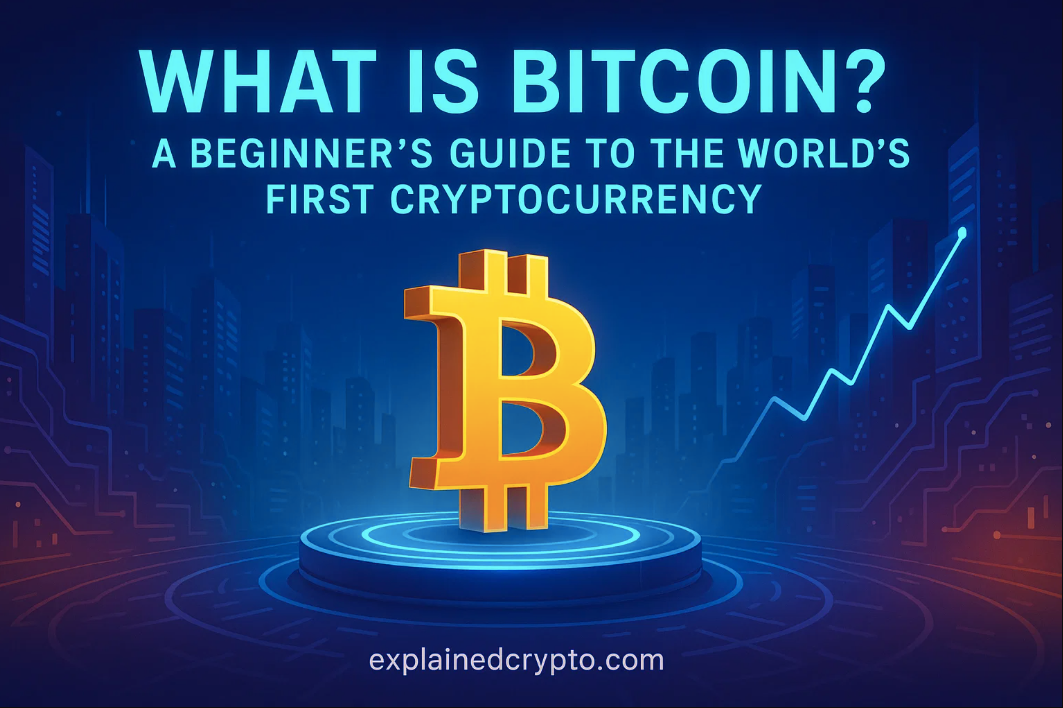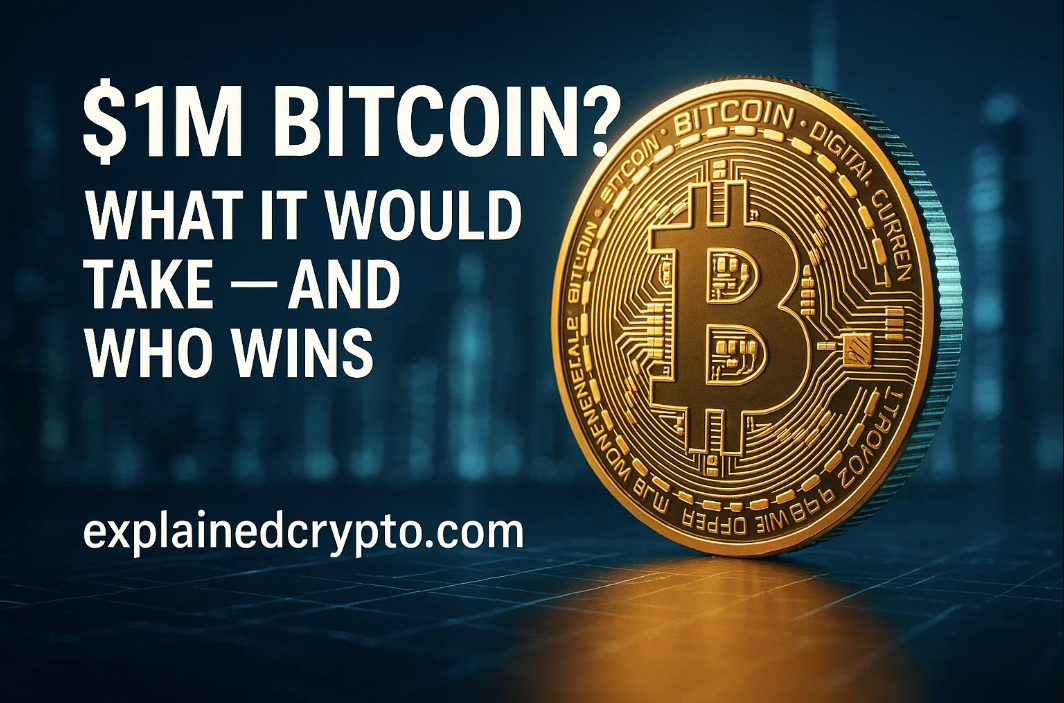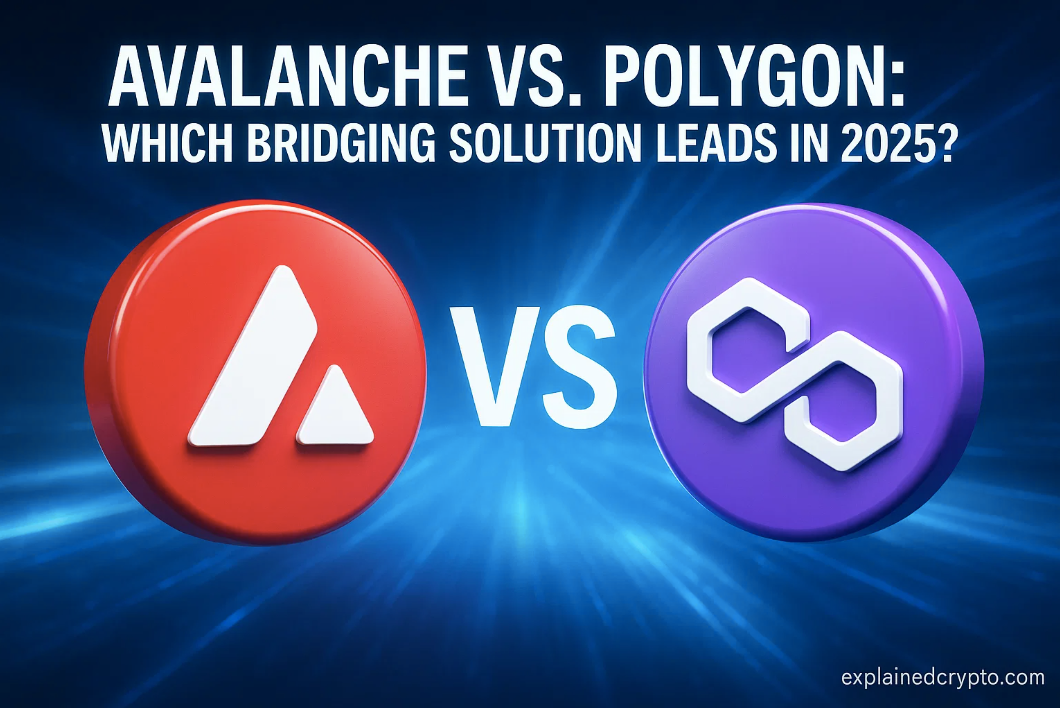Bitcoin is the world’s first cryptocurrency and remains the most influential digital asset to date. Launched in 2009 by the pseudonymous Satoshi Nakamoto, it has evolved from an obscure internet experiment into a trillion-dollar market phenomenon. For beginners, understanding what Bitcoin is—and why it matters—is the first step to navigating the broader world of crypto.
This guide explains Bitcoin’s origins, how it works, its real-world uses, advantages and risks, and what newcomers should know before getting started.
1. The Origins of Bitcoin
The Bitcoin whitepaper, published in October 2008, outlined a vision for a “peer-to-peer electronic cash system.” Unlike traditional currencies, Bitcoin would not require banks, governments, or middlemen. Instead, it relied on cryptography and a decentralized network.
In January 2009, Nakamoto mined the “Genesis Block,” the first Bitcoin block, embedding the phrase:
“The Times 03/Jan/2009 Chancellor on brink of second bailout for banks.”
This message symbolized Bitcoin’s intent: a response to financial crises and centralized banking failures.
2. How Bitcoin Works
At its core, Bitcoin is built on blockchain technology—a distributed ledger where every transaction is recorded publicly and permanently.
Key Components of Bitcoin
| Feature | Explanation |
|---|---|
| Blockchain | Public ledger storing all Bitcoin transactions in blocks. |
| Mining | Process of validating transactions and securing the network using proof-of-work. |
| Nodes | Computers that run Bitcoin software and maintain the blockchain. |
| Wallets | Digital tools for storing and managing Bitcoin. Can be hot (online) or cold (offline). |
| Private Keys | Unique cryptographic codes that prove ownership of Bitcoin. |
| Supply Limit | Fixed maximum of 21 million coins, ensuring scarcity. |
This system ensures transparency, immutability, and security without needing central authority.
3. Why Bitcoin is Valuable
Bitcoin is often compared to “digital gold” due to its scarcity and decentralized nature. Several factors give it value:
- Scarcity: Only 21 million coins will ever exist.
- Security: Proof-of-work makes the network highly resistant to attacks.
- Utility: Enables peer-to-peer payments without intermediaries.
- Adoption: Growing recognition from retail investors, institutions, and even some governments.
Bitcoin vs. Traditional Assets
| Asset | Inflation Resistant? | Borderless? | Decentralized? |
|---|---|---|---|
| Bitcoin | ✅ Fixed 21M supply | ✅ Yes | ✅ Yes |
| Gold | ✅ Scarce but mined yearly | ❌ Difficult | ❌ Centralized custody |
| Fiat (USD) | ❌ Unlimited printing | ❌ National limits | ❌ Central banks control |
4. Use Cases of Bitcoin
Bitcoin is more than an investment—it’s a global payment and savings tool.
Key Use Cases
- Digital Payments – Enables near-instant global transfers without banks.
- Store of Value – Hedge against inflation and currency devaluation.
- Remittances – Cheaper cross-border transfers compared to banks.
- Financial Inclusion – Provides access to money in unbanked regions.
- Institutional Investment – Companies like Tesla and funds like BlackRock have invested in Bitcoin.
5. Benefits and Drawbacks
While Bitcoin has many strengths, it also comes with risks and challenges.
| Pros | Cons |
|---|---|
| Decentralized & censorship-resistant | High price volatility |
| Limited supply (scarcity) | Slow transactions vs. newer blockchains |
| Borderless, global accessibility | Energy-intensive mining |
| Transparent and secure ledger | Regulatory uncertainty |
| Increasing institutional adoption | Not widely used for everyday payments |
6. How to Buy and Store Bitcoin
For beginners, entering the Bitcoin market requires caution.
Steps to Buy Bitcoin
- Choose a reputable crypto exchange (e.g., Coinbase, Binance, Kraken).
- Create and verify your account.
- Deposit fiat money (USD, EUR, AUD, etc.).
- Buy Bitcoin directly or via recurring purchases (dollar-cost averaging).
- Transfer Bitcoin to a secure wallet.
Wallet Types
| Wallet Type | Example | Pros | Cons |
|---|---|---|---|
| Hot Wallet | Mobile apps, exchange wallets | Easy access, free | Vulnerable to hacks |
| Cold Wallet | Hardware wallets (Ledger, Trezor) | Maximum security | Costly, less convenient |
| Paper Wallet | Printed private keys | Offline security | Easy to lose/damage |
7. Risks of Investing in Bitcoin
Investing in Bitcoin carries risks that beginners should understand:
- Volatility: Prices can swing 10–20% in days.
- Regulation: Governments may restrict or tax Bitcoin usage.
- Security: Hacks and scams remain common in the crypto space.
- Energy Debate: Critics highlight Bitcoin’s high energy consumption.
Despite these risks, many investors see Bitcoin as a long-term asset due to its scarcity and adoption curve.
8. Bitcoin Regulation and Global Adoption
Governments worldwide are still grappling with Bitcoin’s role.
- Pro-Bitcoin: Countries like El Salvador adopted Bitcoin as legal tender.
- Neutral/Regulating: The U.S. and EU regulate exchanges and taxation.
- Restrictive: China has banned Bitcoin mining and trading.
Global Adoption Snapshot
| Region | Adoption Trend | Notes |
|---|---|---|
| North America | High | Institutional ETFs & mainstream acceptance |
| Europe | Moderate-High | Regulatory clarity improving |
| Asia-Pacific | Mixed | Japan/Singapore embrace, China bans |
| Latin America | Growing | El Salvador adoption, remittance-driven |
| Africa | Rising | Used for remittances and inflation hedge |
9. The Future of Bitcoin
Bitcoin continues to evolve. With the rise of Bitcoin ETFs, Lightning Network scaling solutions, and increasing institutional adoption, Bitcoin’s role as both an investment and payment system is expanding.
Some predict Bitcoin could surpass gold as a store of value, while others see it coexisting with central bank digital currencies (CBDCs). What’s clear is that Bitcoin has sparked a financial revolution unlikely to disappear.
10. Final Thoughts
Bitcoin is not just another financial asset—it represents a new monetary system built on decentralization and transparency. For beginners, understanding its history, technology, and risks is essential before investing.
Whether you view it as digital gold, a payment system, or simply a technological experiment, Bitcoin has already reshaped the global economy. The journey is just beginning, and knowing the basics today could prepare you for the future of money.
Disclaimer: The information in this article is for general purposes only and does not constitute financial advice. The author’s views are personal and may not reflect the views of explainedcrypto.com. Before making any investment decisions, you should always conduct your own research. explainedcrypto.com is not responsible for any financial losses.





